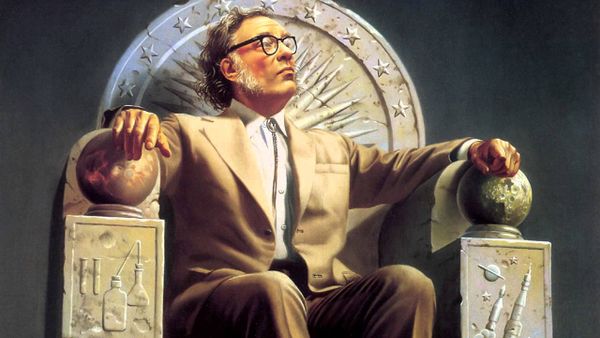Bitdefender's Pick. Celebrating Asimov, the writer who focused on AI and coined the term "robotics"

 What is Bitdefender’s Pick?
What is Bitdefender’s Pick?
The enlightened minds of mathematicians, cryptographers, engineers, physicists, inventors and others have shaped the computer and the Internet into what we know today. Some of them also caught a glimpse of the future and envisioned the technology we are using now or are about to see. Keeping an eye on the visionaries helps us prepare for the future.
Sci-Fi fans from the US celebrated National Science Fiction Day at the start of the year, on January 2, which is also famous author and biochemistry professor Isaac Asimov’s official birthday. Asimov (1920-1992), who wrote famous works including the Foundation series, is recognized as one of the greatest visionaries of the last century: he coined the terms “robotics” and “positronic brain” – the central processing unit of the android robots who populated his fiction.
Many of his books focus on the role of artificial intelligence in the future of mankind. In his fiction, Asimov formulated the famous Three Laws of Robotics, meant as a safety mechanism to ensure robots would not harm humans. The laws have since appeared in many works of fiction by other authors, and even in scientific works.
Back in 1964, in an article for the New York Times, Asimov predicted with some accuracy what the world would look like 50 years on, in 2014. According to Wired, he wrote that kitchen gadgets like coffee machines would be very popular in 50 years time, and he anticipated electroluminescent panels, as well as miniaturized computers “that will serve as the ‘brains’ of robots.”Â
In the same article, he wrote that appliances will be cordless and powered by long-lived batteries in 2014, a vision which is not too far from the world of mobile devices we live in today.
In the 1980s, Asimov spoke of an information and communications system that sounds much like the future World Wide Web, which was going to be developed in the following decade. He anticipated that people would use computers to access a huge library of human knowledge, which would make learning much more appealing to ordinary people.
Although today’s world is still far from the universe imagined by Asimov, many of the things he envisioned are becoming reality. Hundreds of millions of people use computers and mobile devices to access knowledge and information on the Web, and AI mechanisms such as BRAIN, developed by Bitdefender, are working to protect Internet users from computer viruses and other threats.
Read more about Isaac Asimov on Wikipedia.
tags
Author

The meaning of Bitdefender’s mascot, the Dacian Draco, a symbol that depicts a mythical animal with a wolf’s head and a dragon’s body, is “to watch” and to “guard with a sharp eye.”
View all postsRight now Top posts
How to Protect Your WhatsApp from Hackers and Scammers – 8 Key Settings and Best Practices
April 03, 2025
Outpacing Cyberthreats: Bitdefender Together with Scuderia Ferrari HP in 2025
March 12, 2025
Streamjacking Scams On YouTube Leverage CS2 Pro Player Championships to Defraud Gamers
February 20, 2025
How to Identify and Protect Yourself from Gaming Laptop Scams
February 11, 2025
FOLLOW US ON SOCIAL MEDIA
You might also like
Bookmarks








